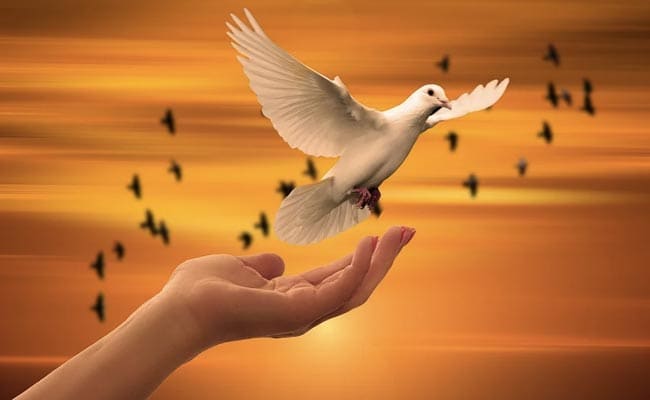The Power of Peace: A Universal Pursuit for Harmony and Tranquility


In a world seemingly consumed by chaos, conflicts, and divisions, the yearning for peace resonates universally among individuals, communities, and nations alike. Peace is an intangible yet profound concept that encapsulates the aspirations, hopes, and dreams of humanity. It represents a state where violence, turbulence, and discord are replaced by serenity, stability, and coexistence. From personal relationships to global affairs, cultivating peace is crucial for fostering progress, achieving development, and creating harmonious societies.
Peace encompasses multidimensional facets that extend beyond the mere absence of conflict. It is a delicate equilibrium crafted through empathy, understanding, and compromise. At the individual level, peace begins with self-acceptance and tranquility of mind. By embracing mindfulness and cultivating emotional stability, individuals become better equipped to interact positively with their surroundings.
Peace within communities is fostered through inclusivity, empathy, and open dialogue. By embracing diversity and celebrating differences, societies can overcome social divisions and create space for meaningful interaction and mutual understanding. Education plays a pivotal role in nurturing peace by promoting tolerance, empathy, and critical thinking, empowering individuals to confront prejudice and misconception.
Peace on a global scale demands diplomacy, collaboration, and respect for human rights. International alliances, partnerships, and organizations are instrumental in resolving conflicts, preventing war, and promoting mutual cooperation. Through negotiation, mediation, and compromise, diplomacy seeks to find common ground and shared interests, striving toward a world where all nations coexist peacefully.
The pursuit of peace holds immense benefits for individuals, societies, and the world at large. Peaceful societies experience higher standards of living with greater access to education, healthcare, and economic opportunities. Bilateral trade and cultural exchanges thrive under peaceful circumstances, fostering the growth of nations and nurturing a healthy global economy.
On an individual level, peace enables personal growth and mind-body wellness. People are able to build healthier relationships, express their true selves, and contribute to the betterment of society. The ripple effect of individual peace spreads, leading to stronger and more resilient communities.
Additionally, peace is essential for environmental sustainability. A peaceful world recognizes the importance of responsible resource management, ecological conservation, and climate action. By avoiding conflicts fueled by struggles over scarce resources, nations can focus on preserving the planet and addressing the urgent global challenges we face.
Also, Cultivating peace is an ongoing effort that requires collective responsibility. It prompts individuals to treat others with kindness, empathy, and respect. It encompasses governments adopting policies that prioritize human rights, social justice, and inclusive governance. It involves institutions promoting dialogue, understanding, and cooperation to resolve conflicts peacefully.
Ultimately, peace is an achievable goal, but it requires perseverance, understanding, and a genuine commitment from every individual. It should be embraced as a shared responsibility that transcends borders, religions, and ideologies. Together, we can create a world where peace reigns, allowing humanity to thrive and prosper in harmony.
